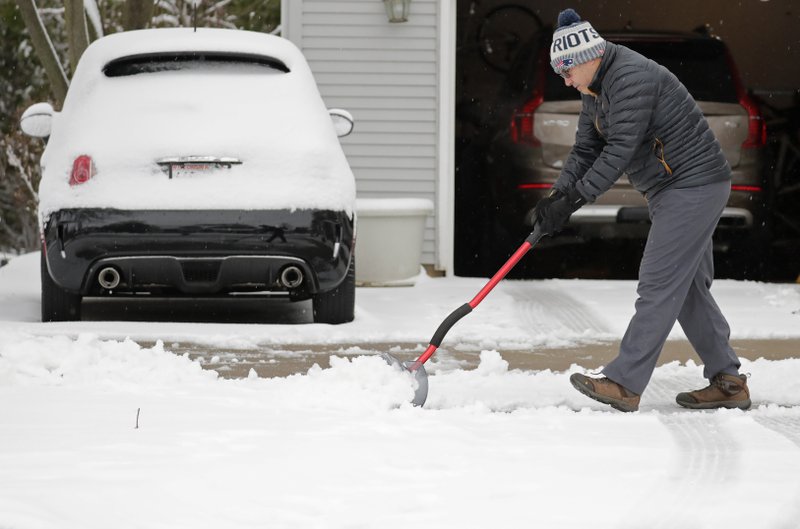Heavy snow and strong winds hammered parts of the central U.S. on Thursday and began moving into the Great Lakes region, knocking out power to tens of thousands of people and creating hazardous travel conditions a day after pummeling Colorado.
The spring blizzard -- the second "bomb cyclone" storm system to hit the region in a month -- left behind hundreds of canceled flights at Denver International Airport, along with wintertime temperatures and snarled traffic before blanketing parts of the Upper Midwest with up to 2 feet of snow.
Hundreds of schools canceled classes in Minnesota, Nebraska and South Dakota, where the governor closed state offices in much of the state for a second day Thursday because of dangerous road conditions.
The Minnesota State Patrol said it had responded to more than 500 crashes statewide since Wednesday, while the National Guard stood ready to rescue any stranded motorists.
In Nebraska, the State Patrol sent additional troopers into the state's panhandle, and several highways were closed. Whiteout conditions were reported in western Nebraska and northwest Kansas.
Winter storm warnings were posted Thursday for northern Wisconsin and Michigan as heavy snow, strong winds, sleet and freezing rain moved into the region. The National Weather Service reported that daily snowfall records had already fallen in La Crosse, Wausau and Green Bay.
Records also were expected to fall in the Upper Midwest, Weather service meteorologist Steven Fleegel said. As much as 25 inches of snow had been reported in northeastern South Dakota, with snowfall forecast to continue into today in that state, Minnesota and southeastern North Dakota. Several highways and stretches of interstates were closed in the three states.
A "bomb cyclone" is a weather phenomenon that entails a rapid drop in air pressure and a storm strengthening explosively. Weather service meteorologist Mike Connelly said this week's storm system drew up moisture from the Gulf of Mexico as it moved out of the Rocky Mountains. He described the potential snowfall as "historic."
Nearly 77,000 homes and business were without power across Minnesota, South Dakota, Iowa and Michigan Thursday, according to PowerOutage.us. The main culprit was snow and ice accumulating on power lines, along with strong winds, said Matt Lindstrom, spokesman for Minneapolis-based Xcel Energy.
National on 04/12/2019